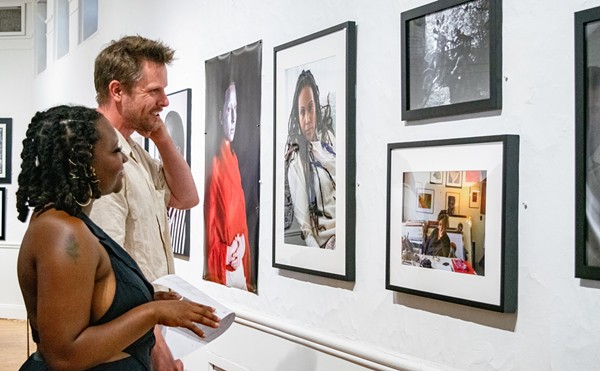Carol Ann Duffy plays with words the way Mozart played with notes. Duffy's writing, like Mozart's composing, is highly sophisticated in both concept and execution, economical even in its excesses, and strangely light despite its substance.
Duffy, born in 1955 in Glasgow, Scotland, is too young to be a contender for the position of Great Britain's poet laureate but might be next in line for the position, unless the decorous Brits consider her work too shocking. A prissy Londoner might not be amused to read about Mrs. Rip Van Winkle, who took up painting in Rip's absence and was unhappily surprised the day she "came home with this pastel of Niagra" to find Rip "sitting up in bed rattling Viagra." The poems in The World's Wife are written in the voices of hitherto unheard-from women: Frau Freud, Mrs. Tiresias, Mrs. Quasimodo, Queen Kong, Pope Joan, and Elvis' twin sister. These women are saucy and even sexy, enjoying men but happy to pillory them, as in "Mrs. Icarus": "I'm not the first or the last/ to stand on a hillock/ watching the man she married/ prove to the world/ he's a total, utter, absolute, Grade A Pillock."
Duffy runs through language like a precocious kid barreling through a rhyming dictionary. In "Mrs. Sisyphus," the end rhymes form a child's counting chant: jerk, kirk, irk, berk, dirk, cork, park, dork, gawk, quirk, lark, mark, bark. In another poem, "Thetis," her "raccoon, skunk, stoat,/ to weasel, ferret, bat, mink, rat" are reminiscent of the fun of Alastair Reid's "Ounce Dice Trice." Internal rhyming is rampant here as well, and exhilarating. These poems romp.
Duffy mixes formal and informal diction with high wit. In "Eurydice," for example: "Just picture my face/ when I heard/ Ye Gods/ a familiar knock-knock-knock at Death's door./ Him./ Big O." The surprise endings seem not gimmicky but right.
Although Duffy's poems are terribly funny, they do have an "agenda." she lists women, real and fictional, who belong to us and include us: Eve, Rapunzel, the wives of Bluebeard and Henry VIII, Snow White, Juliet, Mona Lisa, Nefertiti, Helen, Cleopatra. "Bad girls. Serious ladies. Mourning our dead," she writes. The struggle between the sexes is real for her: "[T]he Gods are like publishers,/ usually male." The collection's penultimate poem, "Mrs. Beast," ends with a battle cry of sorts: "Bring me the wine-cellar key. Let the less-loving one be me."
Joyce S. Brown writes for City Paper, where this feature first appeared. Send comments to [email protected].





